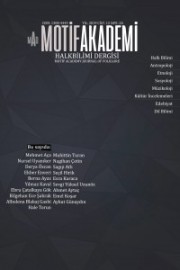JEAN LUC GODARD’IN ‘MÜZİĞİMİZ’ FİLMİ VE BİR TANIK OLARAK SARAYBOSNA
JEAN LUC GODARD’S FILM ‘OUR MUSIC’ AND SARAJEVO AS THE WITNESS
Author(s): Hale TORUNSubject(s): Comparative Study of Literature, Evaluation research, Film / Cinema / Cinematography, Theory of Literature
Published by: Motif Halk Oyunları Eğitim ve Öğretim Vakfı
Keywords: Cinema; Root Facism; Umberto Eco; Sarajevo; Jean Luc Godard;
Summary/Abstract: While the world is stepping into a new era of war, Humanism also emerges as a rising value. Dante Alighieri wrote the Divine Comedy not only as a literary work and an imaginary voyage, but also as a reaction to the political authority of that era. Heaven, Hell, and Purgatory, which consist of three chapters, created such powerful metaphors that they have been a real inspiration for European artists since then. Dante studied humanity in the world of truths, lies, and images while inviting readers to a post – mortem travel expedition. He inspired all painters, from Sandro Botticelli to Salvatore Dali because strong visuals are achieved with strong words. Dante's timelessness can be explained by the fact that Hollywood and the whole world of cinema use it as a source of inspiration. The fantastic, philosophical thought of Western cinema is always based on Dante because the divine comedy is the text of a root culture that inspires a massive civilization. Cinema of Jean Luc Godard is a cinema that starts with the New Wave and continues with a totally different world of language. The study addresses the narrative of the Battle of Sarajevo, which takes place in his film “Our Music” that he created in 2015, in line with Dante’s style.
Journal: Motif Akademi Halkbilimi Dergisi
- Issue Year: 12/2019
- Issue No: 26
- Page Range: 426-439
- Page Count: 14
- Language: Turkish

